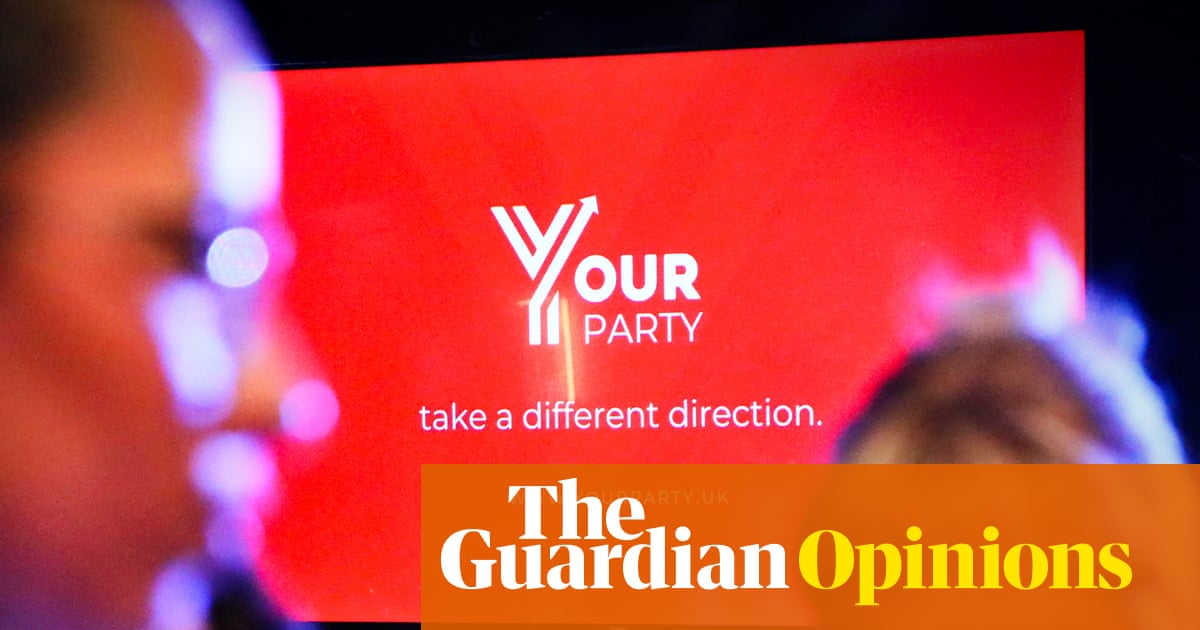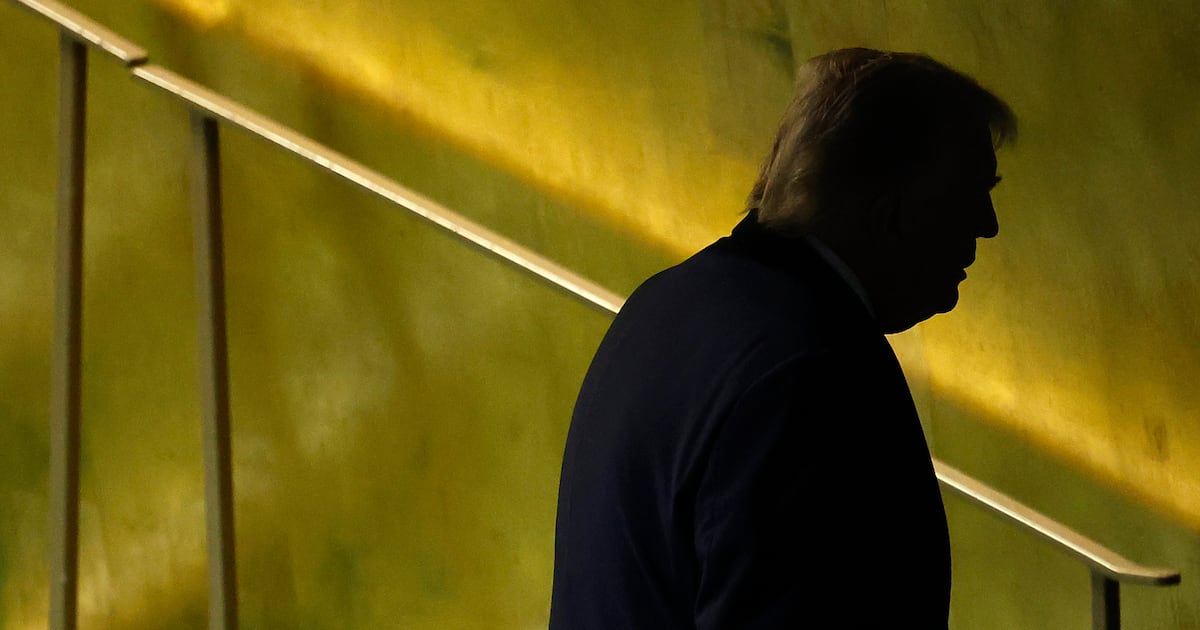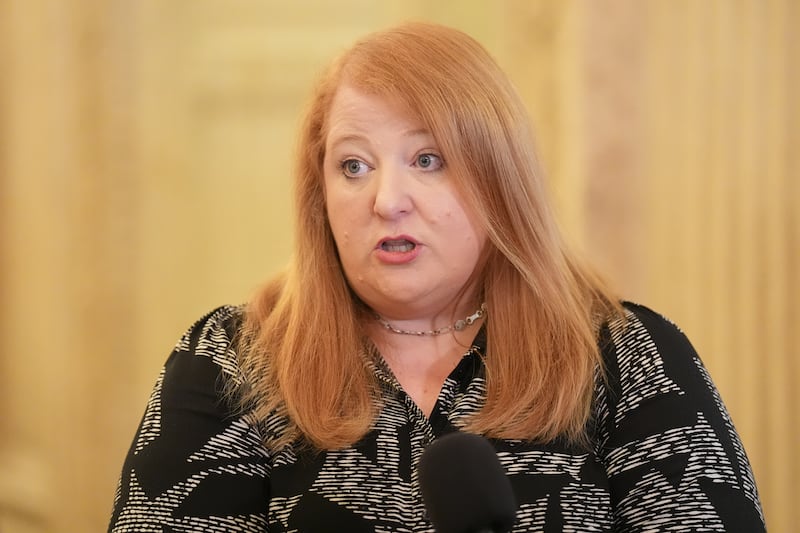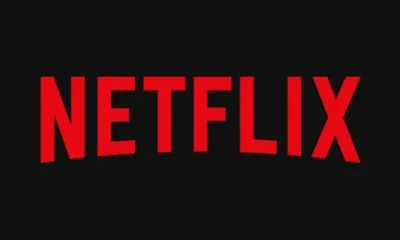‘Trump’s speech can be seen as a kind of unintentional parody of the contempt with which previous US leaders have treated the UN and world opinion’
Opinion
Corbyn and Sultana have a half-formed party with huge potential. Don’t write them off yet | Andy Beckett
Read more on post.

Does Britain need another leftwing party? If you’re not on the left – or if you are, but consider yourself a realist – then the answer may seem obvious. This is a conservative country, you probably believe, in its underlying political assumptions, electoral system and media biases. Any party that doesn’t fit these is put under intolerable pressure. It always splinters, shrinks and collapses, sooner or later.
If even the Labour party, in which radical leftwingers are only ever a minority, is still fundamentally unacceptable to many voters and powerful interests – as the right’s constant outrage at Keir Starmer’s occasionally egalitarian government demonstrates – then what chance does a less established, more disruptive party than Labour have? Over the past half century in particular, ever since Margaret Thatcher successfully undermined socialism’s legitimacy as a mainstream belief system, the space for leftwing politics has sharply contracted in this country. Britain has become one of the world’s least left-tolerant democracies.
A string of socialist parties have been formed, from Respect to Left Unity to the Socialist Labour party, their expectations sometimes sky high, but then rapidly scaled down. Factionalism, personality clashes and ideological differences – often worsened by the claustrophobia of doing politics in siege conditions – have further doomed these parties to frustrated termination, or the humiliation of lingering on, but on a tiny scale. To many people across the political spectrum, the British radical left is best known as the butt of jokes about self-sabotage, delusions and impotence. Tellingly, fewer such jokes are made about the radical right. From Robert Jenrick to Reform UK, the realisation of its dreams seems less amusingly far away.
Over the past two turbulent months, Zarah Sultana and Jeremy Corbyn’s new party has sometimes seemed to be following these depressingly familiar patterns. Despite the decades of experience of those involved in previous leftwing projects, wearily familiar mistakes have been made: public rows, a lack of robust party structures, protracted internal stalemates and sudden, counterproductive outbursts by leading figures. One strategist who has been helping build the party for more than a year says they now feel “misery and rage”, and have stepped away.
Yet, to feel nothing but despair (or delight) at the problems of Your Party is to look at British politics in an orthodox and narrow way. The less common but necessary question to ask about the struggles of such projects is whether they are stunting not just the left but our politics more generally – at a time when it desperately needs to change.
Britain, it is widely thought, is in a period of social and economic crisis as bad as those of the 1930s and 1970s. But, unlike then, much of the public is politically disengaged. Election turnouts are lower, politicians are seen as more similar to each other, and political cynicism and avoidance reign. Even to talk about politics in a public place, such as a pub, can lead to strangers grumpily asking you to talk about something else. As the perceptive political and cultural theorist Mark Fisher used to say, Britain has a depressed economy but boom-time politics: complacently repetitive, ideologically limited – a holdover from the relatively comfortable and depoliticised early 21st century.
The three most popular parties – Reform, Labour and the Tories – are ever tougher on crime and immigrants, and deferential to big business. All three prioritise the same socially conservative voters. All three believe that economic growth can be driven by deregulation and the City of London, as though the 2008 financial crisis never happened.
The lack of an effective leftwing party since then – with the brief exception of the best days of Corbyn’s Labour leadership in 2017 and 2018 – is one of the main reasons our politics is so stuck and angry. Without a party that seriously addresses this country’s socially corrosive inequality, the exploitative and dysfunctional character of the privatised utilities and wider British capitalism, and the racist myths that dominate the debate about immigration and multiculturalism, mainstream politics will continue to move rightwards without solving, and often inflaming, the problems it claims to be addressing.
The Lib Dems present their anti-authoritarian, centrist politics as a way out of this cycle. But a party that also says farmland should be “exempt from inheritance tax”, despite the wealth of many landowners and the funding crisis in public services, clearly has limits as a challenger to the status quo.
The Greens, under their new leftwing leader, Zack Polanski, look better suited to that role. He attacks elites and defends the vulnerable with more aggression than his party has previously, and it is attracting activists and thinkers who used to be aligned with Corbynism, such as James Meadway and Michael Chessum. Helped by Your Party’s turmoil, Green membership has grown to almost 80,000.
after newsletter promotion
And yet, 10 times that many signed up on the Your Party website this summer. Many leftists are still making up their minds about which party, if any, might satisfy their hopes. As the former Your Party strategist tells me, “Conditions are even more favourable for a new party now than last autumn” when serious work on the project began. “Labour is even lower in the polls.”
In recent days, Sultana and Corbyn have made conciliatory public statements. Your Party remains in a contradictory state: tense, ready to explode into conflict again, yet also a half-formed party of rare potential. Corbyn said on Tuesday, “I’m getting … massive numbers of messages saying: ‘When’s the [founding] conference? Get on with it, I want to go out campaigning and I want candidates and I want to see you in the local elections [next May].’”
With few energising political movements around, it’s possible that the conference, now scheduled for 29 and 30 November, or public rallies featuring Corbyn and Sultana – both speakers with big followings – could make the in-fighting of the past two months fade away. With the electorate restless and fragmented, Your Party could win local and parliamentary contests, and establish itself as a leftwing party with leverage, as sometimes exists in continental Europe: a participant in coalition governments, or at least a party that forces centrist rivals to the left.
Yet some Your Party activists fear its credibility has been too damaged and its promise of a bottom-up, non-factional politics too diluted for the project to succeed as originally hoped. “A shadow of what it could have been”, as one organiser puts it. If he’s right, many in mainstream politics will celebrate.
But he hasn’t stopped working for the party quite yet. The large minority of leftwing Britons need a party that explicitly represents them, he says. If not now, when?
-
Andy Beckett is a Guardian columnist
Opinion
Daniel Geary: Trump’s contempt for the United Nations builds on a long American tradition

Read more on post.
The founders of the United Nations must be rolling in their graves. This venerable world institution, now celebrating its 80th birthday, was born of the ideal that conflicts could be settled by dialogue rather than by force. The US was central to the UN’s founding, but on Tuesday its delegates were treated to a speech by an American president that should be cited in a future thesaurus as the opposite of “diplomacy”.
Donald Trump’s rambling monologue was a mixture of outright falsehoods, petty grievances and hectoring. He said he had personally ended seven wars – though it’s far from clear which seven they were. He railed against the “greatest con job ever perpetrated on the world”, denying the man-made warming of the planet that threatens the survival of our species. He even criticised the UN for having previously declined his bid to renovate its headquarters back when he was just a property developer.
Trump did not open a dialogue, he basically told world leaders to shut up and listen to him. It was as though he were claiming that everyone should follow his lead because “I’m really good at this stuff” – except those were his exact words. “Your countries are going to hell,” he told European leaders, whom he claimed were failing to adequately check migration.
The pugnacious and improvisational style of Trump’s presentation, which we have come to expect, is truly one of a kind. This is after all the same man who earlier this week at the funeral of Charlie Kirk contradicted a grieving widow to insist that “I hate my opponent.”
[ America’s accelerating exit from itselfOpens in new window ]
But though his remarks and tone were extraordinary, the content of Trump’s UN remarks reflect the broader Maga movement. Maga has seen the triumph of an “America First” foreign policy with deep roots in the American Right. This current of thought rejects any American responsibility for world peace and order, instead asserting the US power to act unilaterally as it sees fit. It traces back to the America First movement that sought to keep the US out of the second World War, led by aviator and a man often thought of as a Nazi sympathiser, Charles Lindbergh. During the Cold War years, America First took a back seat to the necessity of defeating Communism. But since the Cold War ended, it has once again reared its ugly head.
The United Nations has long been a bugaboo for America Firsters. At its inception, they criticised it as a form of “world government” that would compromise US sovereignty. The voice the UN gave to the decolonised nations of Africa and Asia, and the anti-racist stands it took (for example, against apartheid in South Africa) earned it the scorn of white supremacists. Rightwing Protestants saw it as ungodly. In the bestselling Left Behind novels of evangelical preacher Tim LaHaye, the former head of the UN is the literal Antichrist.
Yet it is not just the American right that has undermined the UN. The five nations of the Security Council were given a veto power, designed to restrain the institution’s democratic principles. The US has frequently used its power to veto policies that practically all other nations support – especially in the case of Israel/Palestine. And Trump is hardly the first US president to fail to honour the nation’s financial commitment to the body.
Trump’s speech can be seen as a kind of unintentional parody of the contempt with which previous US leaders have treated the UN and world opinion. Who could forget the notorious 2003 speech that US secretary of state Collin Powell gave to the Security Council on the eve of the Iraq War, seeking support for a destructive, illegal and unnecessary war that the US had already decided to wage? Powell humiliated himself by offering false evidence of Iraqi programmes of mass destruction and ties to al-Qaeda that failed to convince most world leaders.
But scorn for the UN and its principles has not just come from Republicans. Former US president Joe Biden spoke of defending democracies worldwide and of rebuilding multilateral relationships after the first Trump administration. And in some cases he did so. But he prevented the UN from stopping the Israeli genocide in Gaza. Four times under Biden’s watch, the US vetoed ceasefire resolutions. And Biden ignored a ruling by the International Court of Justice, the principal judicial organ of the UN, that Israel was committing a probable genocide against the Palestinian people.
One thing Trump said in his speech was certainly true: the UN is an often ineffective institution offering mere “empty words”. But the principal reason why the UN’s power has been so limited has been because the US wants it that way. What Trump has made clear is that those who hope for a world based on the principles of dialogue, democracy and peace cannot look to the US for hope, if ever they once should have.
Fortunately, there are some in the world who still voice support for those principles. One of them is Brazilian president Luiz Inácio Lula da Silva, who addressed the UN just before Trump. Lula said: “All around the world, anti-democratic forces are trying to subjugate institutions and suffocate freedoms. They worship violence, glorify ignorance, act as physical and digital militias, and restrict the press.” If the ideals of the UN are to survive this century, then the vision of Lula must triumph over the destructive megalomania of Trump.
Dr Daniel Geary is Mark Pigott professor of US history at Trinity College Dublin
Opinion
Finn McRedmond: I’m sorry if reading Shakespeare is getting in the way of your kayaking lessons

Read more on post.
Show me an English literature teacher who does not believe in the central importance of William Shakespeare’s work to a proper education and I will show you someone who should be in another line of work. But according to the National Council for Curriculum and Assessment these types exist: there are some teachers in Ireland, according to the body’s recent report, who questioned the “necessity” of making Shakespeare’s work compulsory reading in higher-level examinations.
Forcing students to pore over Macbeth, or Sonnet 19? Well, that might impose unspecified “limitations” on the “experience of the students”, these teachers suggested. I wouldn’t go so far as to suggest anyone making such a case is not to fit to teach at all; but they are perhaps not the best choice to be designing a syllabus.
And reading about these so-called limitations on the so-called student experience made me wonder: what kind of “experience” do we expect our students of English literature to have if not reading Shakespeare? Is Iago’s motiveless evil getting in the way of their kayaking lessons? Are Ophelia’s spasms of madness taking up valuable time that could be spent on animal husbandry?
These teachers – abrasive and irresponsible iconoclasts that they are – might tell me off for being glib. They are simply suggesting that all the rigour required to parse Shakespeare presents an opportunity cost, where students could be reading something else.
For example, this year I am told that instead of Othello, your main Leaving Certificate text could be Marina Carr’s Girl on an Altar – a 2022 retelling of the Agamemnon and Clytemnestra myth. Let’s work this one out together: a play with a critical reputation that has survived nearly 500 years, which has had observable influence on the literary universe we all occupy? Or one from three years ago with no chance to have made any real impact on the culture? Talk to me about that opportunity cost again.
“Shakespeare’s work can be difficult for students,” one English teacher wrote in these pages this week, nestled in a longer argument about why the playwright and poet should be made an optional part of the syllabus. Of all the people in the world to be possessed with the bigotry of low expectations, I find it particularly depressing when I identify it in teachers.
I suspect one of the faster ways to ensure your students will struggle with the great works of literature is to claim they already do, as though it is a foregone conclusion.
Thankfully, there are some redoubts against our declining standards: Minister for Education Helen McEntee is arguing forcefully that Shakespeare should remain compulsory. But she will be wading against a strong tide of low-imagination bureaucrats.
Despairing over this Shakespeare conversation, I turned to the Curriculum Specification for Leaving Certificate English, issued in August 2025. I trawled through pages of cliche (“language does not exist in a vacuum”); patronising descriptions of the student body (“enriched, engaged and competent learners”); banal truisms masquerading as insight (“students vary in their family and cultural backgrounds, languages, age, ethnic status, beliefs, gender and sexual identity”); and political ideas that might have been interesting in 2015 (students must consider “the way identities, places and groups are presented differently”).
Within all of this Disneyland guff, I detected no engagement with the meaning of the canon, nor anything about the centuries-deep tradition of literary criticism, nor even a succinct expression about what the discipline of English literature is.
If this is how we treat teenagers, is it any wonder that global literacy rates are declining, and reading comprehension skills are collapsing across the Anglosphere? These expectations are part of a broader global trend that is seeing, for the first time in decades, a reversal in our literary capabilities.
This is comprehensively evidenced: in a collation of “average scores” in high-income countries, the Financial Times found a precipitous decline in reading levels from 2012 to now. An Atlantic chart identified 2012 as a similar dropping-off point for literacy skills. And the number of American teenagers who read in their leisure time has been declining since 1985, from 45 per cent to a meagre 14ish per cent.
Meanwhile, my friend James Marriott in the London Times – from whom I have adopted a kind of collateral fury at the state of literary education – points to a study of English literature students at American universities. It found many of them could not interpret the opening paragraph of Charles Dickens’s Bleak House. This is a book, he reminds us, “that was once regularly read by children”. Dust off your copy and tell me if it really is so difficult.
Given the climate, English teachers should be arresting the pace of decline, not accelerating it. Instead, they are suggesting we could take Shakespeare out of the syllabus because students find it a bit more complicated than Gatsby. This is not just professionally foolish, but societally negligent.
Opinion
Newton Emerson: Campaign to free Bailey the cocker spaniel from prison sparked a debate worth having

Read more on post.
Bailey the cocker spaniel has been released from Magilligan Prison in Co Derry.
One of three rehabilitation “support dogs” in the Northern Ireland prison system, he has been at the centre of an increasingly bizarre political row over the past month.
Animal charities had raised concerns about Bailey’s welfare and the use of prison support dogs in general. These concerns were taken up by the Ulster Unionist Party and directed at Alliance justice minister Naomi Long, who strongly rebutted them, as did the Northern Ireland Prison Service.
On Monday, the prison service said Bailey had been moved to a family home, as police had received a threat he would be harmed to embarrass Magilligan’s governor.
This sinister development makes the story no laughing matter, but it has highlighted an odd feature of Northern Ireland politics: prison issues are normally a dog that does not bark.
It might be imagined prison issues would interest Northern Ireland, given their prominence during the Troubles and the peace process. The opposite appears to be the case.
Perhaps prisons are still too subconsciously associated with the past and hence not to be discussed in polite company. Ordinary decent debate on the subject is largely absent, certainly compared to Britain and the Republic.
The Bailey saga revealed a lack familiarity with basic arguments for and against imprisonment as a form of punishment, rehabilitation and public protection. Beyond animal welfare concerns, whether misplaced or not, it was clear many people felt Bailey should not be in Magilligan because dogs are nice and prisoners should not have nice things.
Long and the prison service had to argue against this from first principles, for the benefit of the public, the media and other politicians.
This is particularly lamentable considering the effort that went into devolving policing and justice. It was finally delivered by the 2010 Hillsborough Castle Agreement, 12 years after the Belfast Agreement, much of that time spent in fraught arguments that dominated politics in Northern Ireland and drew in prime ministers and presidents.
Sinn Féin would not “recognise” the police, and unionists feared Sinn Féin would have influence over the courts. This is why the justice minister is almost always from the Alliance Party – that was the compromise unionists and republicans eventually reached.
Prisons went largely unmentioned throughout this 12-year argument, yet it in the end it was only about them.
Police, courts and prosecutors continue to operate independently of Stormont, an outcome that was never in serious doubt. The prison service is the only major element of the criminal justice system placed under even arms-length ministerial authority. Stormont’s justice minister is in effect the minister for prisons, plus some bits and pieces.
Apathy about this has one positive explanation: Northern Ireland’s three prisons are generally well-run and in reasonable condition. There is not the imperative to discuss them that comes when prisons are chaotic, overcrowded and falling apart.
The prison service’s good inspection ratings are the culmination of 15 years of improvement. Stormont launched a prison reform programme as part of the Hillsborough Castle Agreement, based on expert recommendations and oversight. It was largely completed on schedule by 2016, during which it also got costs down by 27 per cent. This success has scarcely been noticed outside its own field.
The programme’s focus was managerial, not ideological. It aimed to transition Northern Ireland from a Troubles-era system to a normal system, as defined by international best practice and human rights standards. Devolution was not taken as an opportunity to ask fundamental questions about whether this is what Northern Ireland wanted or if it would like to do things differently, and nobody has really cared to ask since.
Recent controversies over alleged leniency by the courts have started a debate about sentencing, and revived a decade-old question about whether Northern Ireland needs a sentencing guidelines council. It is the only jurisdiction in the UK and Ireland without one.
This debate has shown much of the public and their political representatives strongly support the sanction of imprisonment – a perfectly legitimate view. However, there seems to be little matching understanding that more use of custody requires more investment in a high-quality prison system.
Good prison conditions can be justified on ethical grounds, or as a prerequisite for any hope rehabilitation. But even if you are unmoved by either of those arguments, prisons must be civilised environments for purely pragmatic reasons, to retain experienced staff and to avoid releasing inmates who are more dysfunctional than when they were admitted.
One sign of understanding this would be to have no instinctive objection to a prison having a dog.
Magilligan is a medium security facility with 500 inmates and plenty of green outdoor space. The question Bailey’s story ought to have raised is why it only had one dog.
-
Culture2 days ago
Taylor Swift’s new cinema outing generates more than €12million in just 24 hours
-
Politics2 days ago
European Parliament snubs Orbán with vote to shield Italian MEP from Hungarian arrest
-
Business23 hours ago
Households to be offered energy bill changes, but unlikely to lead to savings
-
Culture2 days ago
Milan Fashion Week 2025: Unmissable shows and Giorgio Armani in mind
-
Opinion2 days ago
AI Is Pointless If It Doesn’t Boost Productivity
-
Health3 days ago
EU renews support for WHO’s Universal Health Coverage Partnership
-
Environment1 week ago
Chimps drinking a lager a day in ripe fruit, study finds
-
Culture2 days ago
Traitors Ireland finale: A tense and thrilling conclusion to a spectacular first season









































